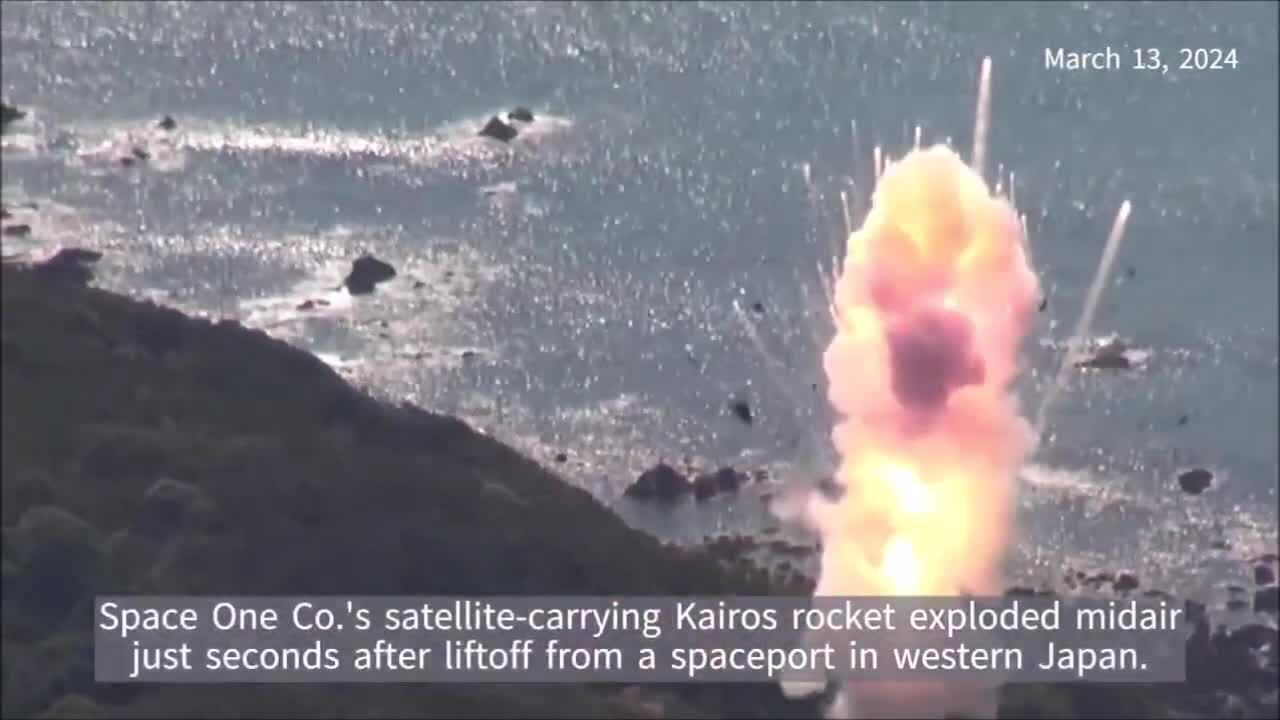Space One's first attempt to reach orbit failed when its Kairos rocket exploded shortly after liftoff on March 13.
Kairos rocket exploded shortly after leaving the launch pad. Video : Kyodo News Plus
The Kairos rocket developed by Japanese company Space One lifted off from the Kii Spaceport in Kushimoto, western Japan, at 9:01 a.m. on March 13 ( Hanoi time). If successful, Space One would become Japan's first private rocket launch company to reach orbit. But just five seconds later, the flight ended abruptly when the abort system was activated, causing the rocket to explode.
The incident caused debris to fall on the launch pad. According to a press conference after the incident, there was no damage and no injuries. The fires were quickly extinguished.
"The rocket aborted its flight after realizing that completing the mission would be difficult," said Masakazu Toyoda, president of Space One. It is not clear why the automatic abort system was activated. Experts will conduct an investigation into the cause of the failure. The next launch plan will depend on the results and the implementation of necessary measures.
The Kairos rocket is 18 meters long, with four stages, three of which are solid-fueled and the upper stage uses liquid fuel. The vehicle can carry 250 kg of cargo into low Earth orbit. It is also designed with a high degree of automation.
Space One, based in Tokyo, was founded in 2018. The company aims to launch more than 20 times a year before the end of the decade. A previous launch scheduled for March 9 was canceled after a spacecraft entered a dangerous area during launch.
Failures in new rocket launches are not uncommon. SpaceX’s Falcon 1 rocket failed on its first attempt, but was ultimately successful. But the Kairos failure could be seen as a setback for Japan’s larger plans to develop its space industry. Japan’s space policy committee is considering a $6.7 billion, 10-year space strategy fund to promote the country’s autonomy, innovation and competitiveness in space.
The plan includes increasing overall launch speeds with the new H3 rocket and rockets from private companies. Interstellar Technologies, another Japanese startup, aims to make its first orbital launch with the Zero rocket in 2025.
Thu Thao (According to Space )
Source link

































![[Photo] An Phu intersection project connecting Ho Chi Minh City-Long Thanh-Dau Giay expressway behind schedule](https://vphoto.vietnam.vn/thumb/1200x675/vietnam/resource/IMAGE/2025/8/21/1ad80e9dd8944150bb72e6c49ecc7e08)
































![[Photo] Politburo works with the Standing Committee of Hanoi Party Committee and Ho Chi Minh City Party Committee](https://vphoto.vietnam.vn/thumb/402x226/vietnam/resource/IMAGE/2025/8/21/4f3460337a6045e7847d50d38704355d)


































Comment (0)